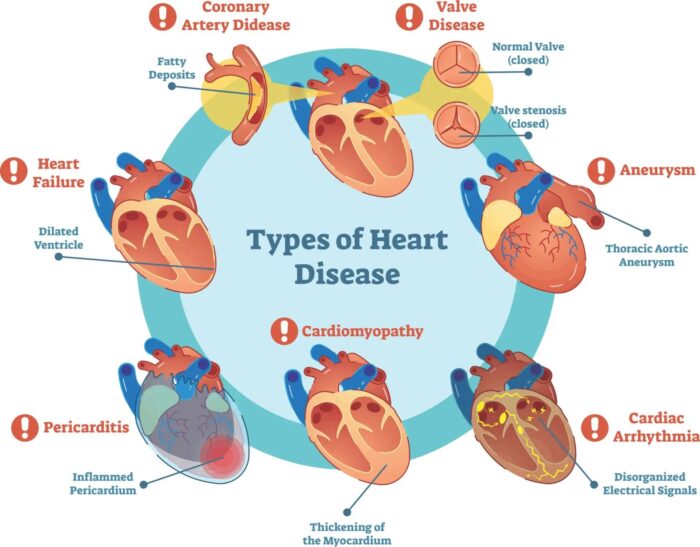John Doe
General SurgeonPretium saepe pariatur ornare cillum repudiandae inceptos iaculis cumque vulputate sequi neque quos exercitation aliquip interdum, veniam? Aute error, elit!


Heart diseases refer to a range of cardiovascular conditions that affect the heart’s structure and function. These conditions include coronary artery disease, heart failure, arrhythmias, and valvular heart disease, which can lead to serious health complications if not properly treated.
Heart diseases primarily affect the blood vessels and the heart’s ability to pump blood efficiently. Common types include coronary artery disease, which causes blocked arteries, and heart failure, where the heart struggles to pump blood effectively.
Heart diseases can be caused by various factors, including high blood pressure, high cholesterol, smoking, diabetes, obesity, and an inactive lifestyle. Genetic predisposition and excessive alcohol consumption can also contribute to the development of heart conditions.
Symptoms may include chest pain (angina), shortness of breath, fatigue, irregular heartbeat, and swelling in the legs or abdomen. In severe cases, heart attacks or strokes may occur, requiring immediate medical attention.
Treatment options vary based on the type and severity of heart disease. These include lifestyle changes, medications to control blood pressure and cholesterol, and surgical procedures like angioplasty or bypass surgery.
Preventing heart disease involves maintaining a healthy diet, regular exercise, avoiding smoking, managing stress, and controlling conditions like hypertension and diabetes. Regular health check-ups are essential for early detection and management.